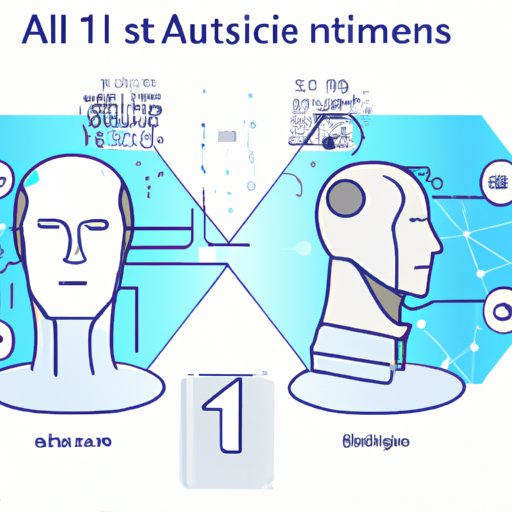Introduction
Artificial intelligence (AI) has become increasingly pervasive in our daily lives, from automated customer service chatbots to voice assistants like Alexa and Siri. But what exactly is an AI system? This article will explore the definition of AI systems, the components of such a system, the benefits and challenges it presents, and the outlook for the future of AI systems.
Definition of AI Systems
An AI system is a computer program that is designed to simulate human intelligence and behavior. AI systems can learn from experience, adapt their behavior based on new information, and solve problems without explicit instructions. AI technology is used in a variety of applications, including natural language processing, computer vision, robotics, and autonomous vehicles.

Overview of Components of an AI System
An AI system typically consists of four main components: hardware, software, data, and algorithms. The hardware component includes computers and other physical devices. The software component includes the programming code that enables the AI system to operate. The data component includes the input data that the AI system uses to learn and make decisions. Finally, the algorithms component includes the mathematical models and methods that enable the AI system to process data and make decisions.
Benefits of AI Systems
AI systems offer a variety of benefits, including increased efficiency, improved accuracy, and reduced costs. According to a study by McKinsey Global Institute, AI technologies have the potential to increase global GDP by $13 trillion by 2030. AI systems can automate mundane, repetitive tasks, freeing up employees’ time to focus on more complex tasks. Additionally, AI systems can improve decision-making accuracy by eliminating cognitive biases and providing more accurate analytics.
Challenges of AI Systems
Though AI systems offer many benefits, they also present certain challenges. One major challenge is algorithmic bias, which occurs when an AI system learns from biased data sets. For example, facial recognition systems have been found to be less accurate for people of color due to the lack of diversity in the data sets used to train them. Additionally, AI systems can introduce data security concerns, as the data used to train them may contain sensitive information. Finally, AI systems can have a societal impact, as they may lead to job displacement and income inequality.
Investigating the Future of AI Systems
The future of AI systems looks promising, as researchers are exploring ways to make them even more powerful. One area of research is autonomy and decision-making, which involves giving AI systems the ability to make autonomous decisions without human intervention. Another area of research is artificial general intelligence (AGI), which involves creating AI systems that can think and reason like humans. Finally, research is being done to explore ways to better integrate AI systems with humans, such as through natural language processing and machine learning.
Conclusion
In conclusion, AI systems are computer programs designed to simulate human intelligence and behavior. They offer many benefits, such as increased efficiency, improved accuracy, and reduced costs. However, they also present certain challenges, such as algorithmic bias and data security concerns. Researchers are currently investigating ways to make AI systems even more powerful, such as through autonomy and decision-making, AGI, and better integration with humans. As AI technology continues to evolve, it will continue to have a significant impact on society.
(Note: Is this article not meeting your expectations? Do you have knowledge or insights to share? Unlock new opportunities and expand your reach by joining our authors team. Click Registration to join us and share your expertise with our readers.)
